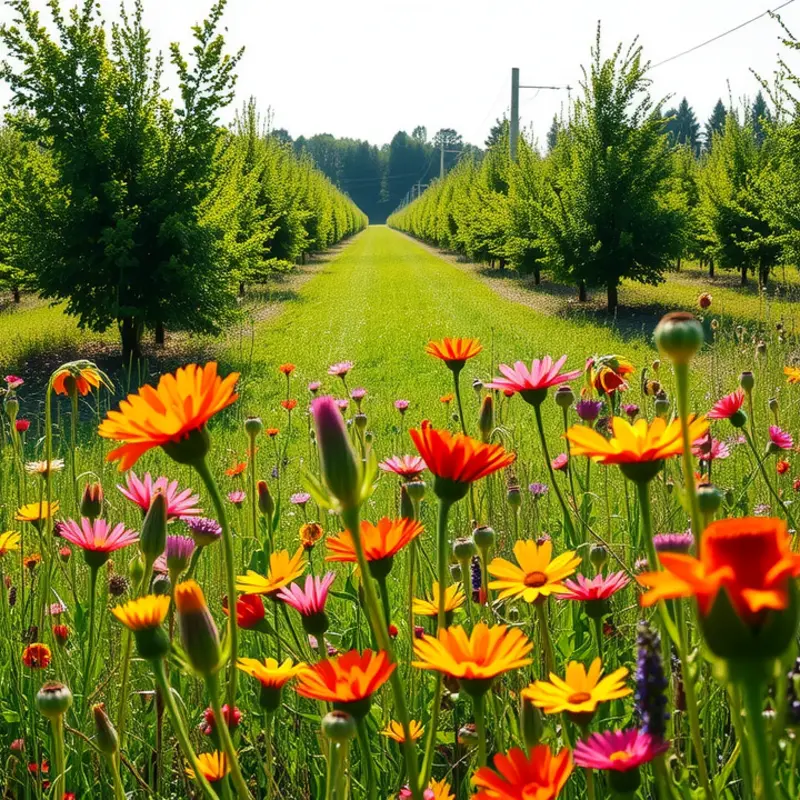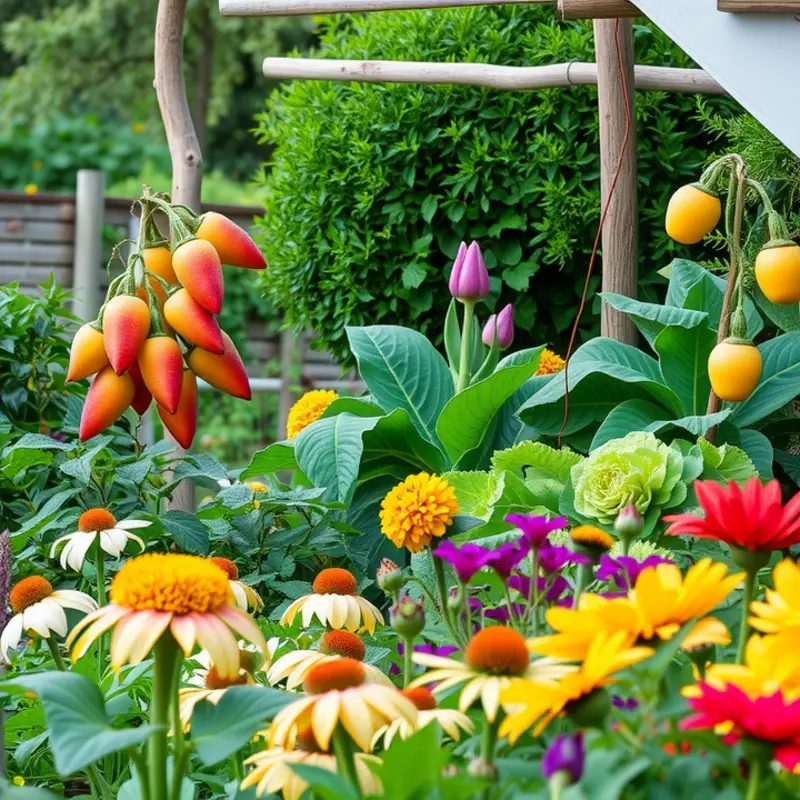Choosing the right foods can have a profoundly positive impact on our environment, especially when it comes to supporting essential pollinators. These tiny creatures play a crucial role in our ecosystems, aiding the growth of countless plants that sustain life. By integrating pollinator-friendly foods into our diets and choosing sustainable options, we contribute to their health and survival. Let’s explore the foods and practices that not only nourish us but also promote a healthier planet.
Pollinator Power and Your Plate

Our food ecosystem is intricately tied to the activities of countless pollinators. These small yet mighty creatures, including bees, butterflies, and birds, play a pivotal role in the production of many crops that grace our tables. As we become increasingly aware of ecological challenges, it is essential to understand how our dietary choices can impact and support these vital contributors to biodiversity.
Pollinators are responsible for the reproductive success of more than 75% of the world’s flowering plants. They facilitate the growth of over 1,200 crops, contributing significantly to the abundance of fruits, vegetables, nuts, and seeds. Without them, staples like apples, almonds, blueberries, and squashes would become scarce, affecting both our diets and the biodiversity of our planet.
One practical way to support pollinator populations is to mindfully choose the foods we consume. By prioritizing crops reliant on pollinators, we can indirectly promote their habitats and food sources. Fruits and vegetables such as cucumbers, melons, and avocados are prime examples. These crops attract a variety of pollinators during their flowering stages, and consuming them fosters demand that supports ecologically-minded farming practices.
In the nut and seed category, almonds stand out as a critical crop for pollinator reliance. Almond trees require substantial bee pollination for high yields, making them a natural choice for those seeking to align their diet with pollinator-supportive dynamics. Similarly, considering the consumption of sunflower seeds can be beneficial, as sunflowers are a favorite among pollinators and contribute to soil health and crop diversity when managed appropriately.
While direct consumption of pollinator-friendly foods is effective, supporting sustainable practices is equally crucial. Sourcing food from farms committed to ethical and ecological stewardship as discussed in this article can amplify positive outcomes for pollinator populations. Farms integrating practices like crop rotation, cover cropping, and reduced pesticide usage nurture environments where pollinators can thrive alongside high crop yields.
Understanding the link between nutritious crops and pollinator preservation offers a unique perspective on our food choices. It underscores a pivotal truth: the action of selecting pollinator-dependent foods is a significant step toward bolstering biodiversity. In doing so, we not only savor the bounty of nature but also contribute to its continuous flourishing. Let us remember, each meal presents an opportunity to invest in the ecosystems that sustain us.
Choosing Foods that Love Pollinators

Supporting the health of pollinators starts with informed choices about what we eat. Opting for local produce plays a crucial role. It reduces transportation emissions and enhances local biodiversity. By supporting community farmers who prioritize eco-friendly practices, we encourage a sustainable food system that pollinators thrive in.
Organic foods are a straightforward choice for aiding pollinator health. These crops are cultivated without harmful pesticides, which frequently contribute to pollinator decline. Choosing organic options reduces toxic exposure and fosters environments where beneficial insects can flourish. Moreover, organic farming methods often employ crop diversity and rotation, creating diverse habitats that support pollinator populations.
Regenerative agriculture stands as a beacon for ecological health and pollinator support. This practice aims to restore soil health, emphasizing biodiversity and resilience. By purchasing products from regenerative farms, we support practices that improve the habitats pollinators depend on. These farms often integrate wildflower strips and cover crops, encouraging pollinators through enhanced floral diversity.
Gardening at home can significantly impact local pollinator health. Even small spaces can host plants that attract bees and butterflies. Consider planting herbs like lavender, sage, and mint, which not only enhance your culinary creations but also draw pollinators with their rich nectar sources. These herbs can transform a modest garden into a vibrant sanctuary for bees.
Aligning your diet with the seasons is both ecologically sound and beneficial for pollinators. Seasonal foods grow in harmony with local ecosystems without the need for excessive resource use. They support the natural flowering cycles that pollinators rely on. Shopping at local farmers’ markets increases the likelihood of purchasing seasonal produce, often harvested at peak flavor and nutrition.
By selecting foods that enhance pollinator health, we not only improve biodiversity but also foster a more stable ecosystem. For more tips on eco-conscious cooking strategies, consider this resource. Through thoughtful food choices, we strengthen the essential links between agriculture and our environment, creating a future where pollinators and humans alike can thrive.
Final words
Selecting foods that support pollinators is one of the most effective ways to contribute to environmental health while benefiting from nutritious options yourself. By prioritizing local, organic, and seasonal products, we can sustain pollinator populations and ensure a healthy ecosystem. As you fill your grocery cart or harvest from your garden, remember that each choice can make a significant impact on the natural world. Let’s commit to being environmentally conscious in our food choices, paving the way toward a thriving planet for all life.








